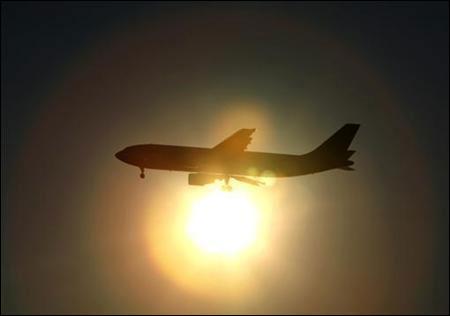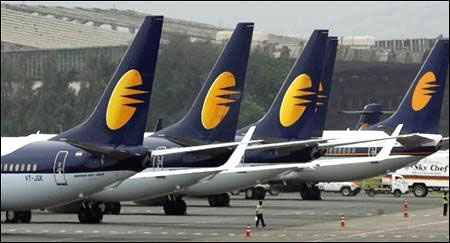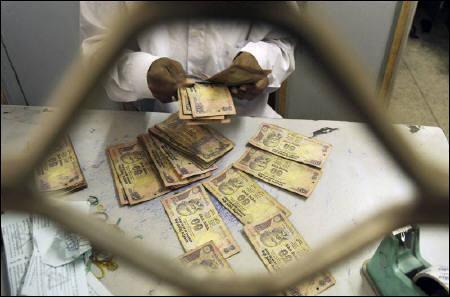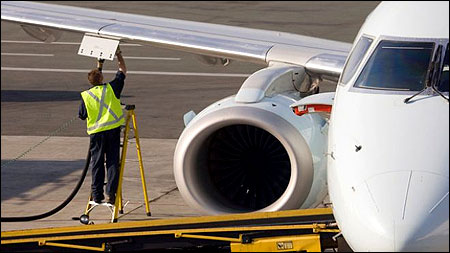 | « Back to article | Print this article |
Falling rupee spells fresh trouble for airlines
A sagging rupee has compounded the problems of loss-making Indian airlines, as 35 per cent of their operating cost is in dollar terms.
The domestic currency on Tuesday closed at a new low of Rs 55.39 for a US dollar. It has shed 11.51 per cent value since February, increasing dollar-denominated expenditure by a similar amount, especially for carriers with less international operations.
Lease and maintenance rentals of aircraft, salaries to expatriate pilots, parking and landing rates at international airports and jet fuel prices are all dollar-denominated costs.
Click on NEXT for more...
Falling rupee spells fresh trouble for airlines
However, carriers like Air India and Jet Airways that operate a large number of international flights have been able to offset the impact of rupee depreciation by international revenues.
"Normally, a depreciating rupee does not impact us much, as the increase in cost is offset by the revenue from the international sector. That is not exactly the case now, as our international operations are hampered because of the pilots' agitation," said a senior Air India executive, who did not want to be identified.
Both Air India and Jet Airways get over 60 per cent of their revenue from international operations. IndiGo and SpiceJet get a substantial part of their revenue from domestic operations, while Kingfisher and GoAir do not have international operations.
Click on NEXT for more...
Falling rupee spells fresh trouble for airlines
The rupee depreciation is set to impact the bottom line of airline companies further.
Losses of the country's three listed carriers stood at Rs 2,462 crore (Rs 24.62 billion) in the nine months to December 2011.
Jet Airways made a loss of Rs 937 crore (Rs 9.37 billion) on a revenue of Rs 10,773 crore (Rs 107.73 billion), while SpiceJet and Kingfisher incurred losses of Rs 350 crore (Rs 3.5 billion) and Rs 1,175 crore (Rs 11.75 billion) on revenues of Rs 2,886 crore (Rs 28.86 billion) and Rs 4,751 crore (Rs 47.51 billion), respectively.
Though airlines do not have much room to offset the increase in cost, they are trying different things, including efficient operation of aircraft and renegotiation of contracts, to have some control.
"Things like not taking the plane to high altitude, taxing the aircraft with only one engine and cleaning the plane with limited helps are saving around two per cent of the fuel cost," said an executive of a low-cost carrier.
Click on NEXT for more...
Falling rupee spells fresh trouble for airlines
Airlines are also able to save on fuel by paying dues to oil marketing companies on time, which fetches a discount of 10-15 per cent.
"We keep negotiating with our various vendors, ensuring that every time there is some cost benefit without compromising on the quality," said a senior executive of a full-service carrier.
Airlines like Jet Airways have stopped sourcing of on-flight meals from certain international airports and decided not to hire foreign pilots to save costs. Jet estimates these measures could result in savings of Rs 1,000 crore (Rs 10 billion) annually.




